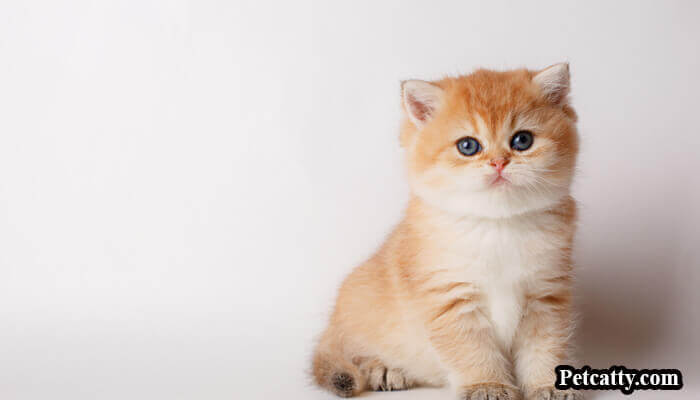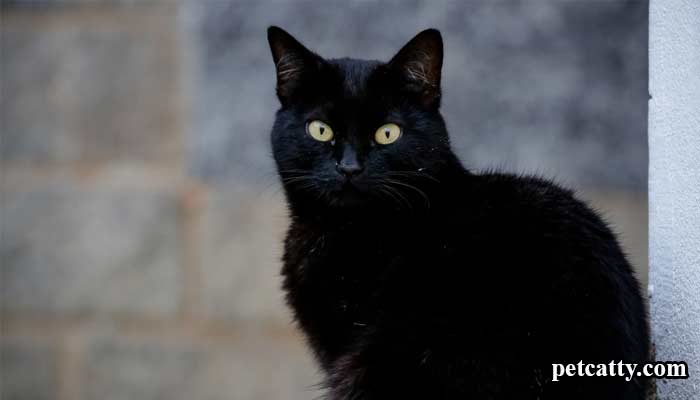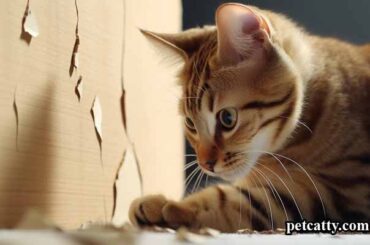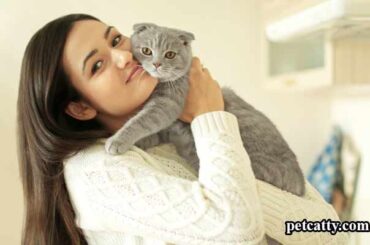Generally, cats have the natural ability to control their poop or pee for almost 24 to 48 hours. Kittens, on the other hand, can hold for 12 to 24 hours. However, every breed of cat is different and may not have the capability to control the poop too long.
How long can a cat go without pooping?
Many factors determine the interval between the two pooping sessions. Most cats poop every 24 to 36 hours. The cats pooping session is determined by the food they eat. The carb-rich food makes the cat poop every day.
Food keeps the guts clean and provides the required nutrition that helps them to stay healthy.
Observe the cat pooping frequency. If you find the cat is pooping less, then it might have some health problems. For example, the cat may have constipation issues. Consider taking the cat to the veteran if he has not pooped for more than 48 to 72 hours.
The bowel movement is essential to remove the waste product from the gut. Without this, the cat will develop serious health issues, and it may be difficult to cure if internal organs are damaged. Therefore, giving a necessary treatment to your pet is essential to keep her healthy.
As a precautionary major, try to change the regular food. See if that helps you to make any progress. But, unfortunately, the food is contaminated, and the bacteria in the food are causing it to develop stomach problems.
Focus on a healthy diet for your cat. When you change the food, the harmful bacteria control by the immune system. Talk to the veteran to know the cause and what kind of food you should feed your cat if the symptom occurs again in the future.
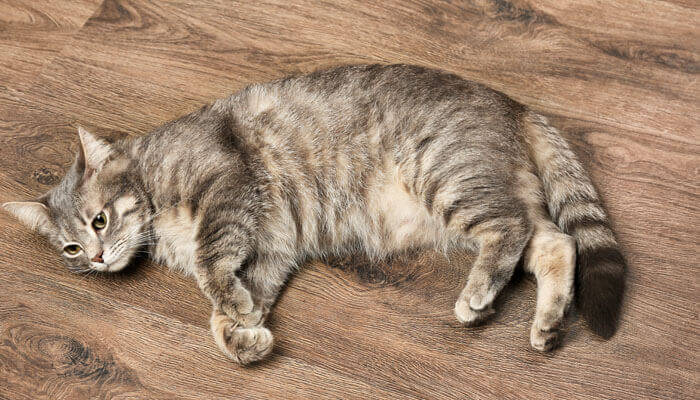
Can cats hold their poop overnight?
Yes. A cat can hold their poop overnight if they do not find the way out or the non-availability of the litter box around. However, it is not advisable for the owner to not allow them to use the toilet time. Holding the poop so long may harm the cat’s health.
Additionally, expect every cat to behave similarly. For example, some household cat trained to use the litter box for pooping understands that they cannot poop on the floor. So they wait until they have access to the little box.
There are many people how have shared their stories on the internet saying they have locked their cat in the room when they have to travel and when they come back after long hours journey, the cat is still waiting for the owner to come open the door so they can go to their litter box to poop.
The household cat holds their poop for an extended period. This is because the cat does their best to keep your home clean. However, if they are trapped in the room with you, the cat will meow and scratch the door, indicating open the door, so they can go and poop.
Do cats hold in their poop?
The cat can hold their poop for more than 24 hours if they do not find the place or allow them to go outside. After that, the household cat uses the little box to poop.
Cats love to stay clean and hygienic. You might have seen them constantly grooming themselves. They do not like wet or dirty, so they always keep them clean. Also, the cat does not put their poop on the ground. Instead, they bury it under the soil, or they find a common place where they can poop.
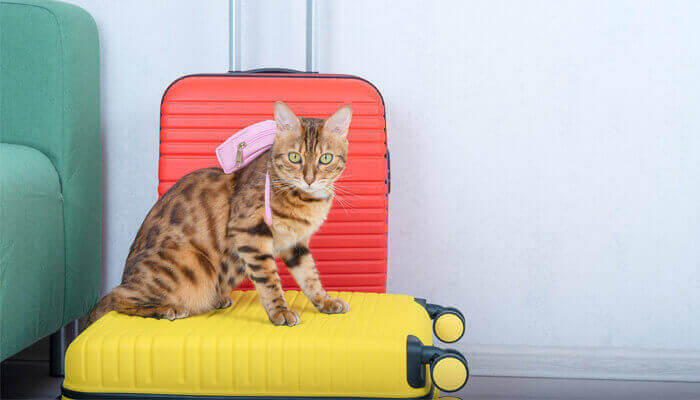
How long can cats hold their pee while traveling?
The cat can hold their urine for almost 24 to 48 hours. During the travel, the cat may feel thirsty and may like to drink water frequently. They will have their urine until you give them time to use their litter box or put them on the open ground.
Cats’ poop and pee holding capacity are determined based on the various factors and surrounding environment, such as,
1) Cats bladder and gut health
The cat occasionally feels sick when they eat something that they cannot digest easily. Infection in the bladder and gut may cause it to develop a serious health problem that needs medical treatment.
If you find the cat behaving unusual and not eating regular food, as usual, they might have pain in their gut. Reach to the nearby veteran as quickly as possible and conduct the diagnosis to know the actual cause.
2) Blockage in the urinary and gut tract
Urinary blockage is generally found in male cats due to their narrow urethras. It blocks the urine flow due to health problems, stones, or infections in the body.
3. Cats’ health and activity level.
House-cat generally eats less, so they poop and pee less. In comparison, those involved in regular athletic activities such as running, climbing, jumping on the trees, etc., may eat more food than the average cat to compensate for the burned calories. The more they eat, the frequency of the cats pooping and urinating increases.
4. Age of the cat.
Aging would cause the cat to decrease their ability to hold the poop and pee for a long duration. Therefore, you may find them using the litter box very often as their age grows.
Also, the food they eat may not get digestible properly. As a result, it passes to the guts without process, and the cat may have to poop more frequently.
5. External stresses and changes.
When a cat is under stress, they behave abnormally. They poop and pee constantly. The source of the pressure can be varied. First, check for the health problem.
If the cat has some pain in their body, they might not think anything and may develop a high stress level. However, the severe pain is causing them to drink more water and pee more often.
6. The cat’s diet and meal portions.
Choose the diet plan for your plan wisely. Consult the veteran and plan the nutritional diet for your cats, so they live a healthy life. Do not feed any random household food. The cats are susceptible the food.
If they eat something that is not their everyday meal, the cat will have symptoms of constipation. This is because the digestive system will fail, and it will cause pooping all the time. The cat may not hold their poop for so long when they are dealing with constipation.
7. Lifestyle.
The household cat lifestyle will be completely different than the cat that lives in the forest. The forest cat has to spend their day to find the food, so they stay active all the time.
In contrast, the household cat sits in their place and waits for the food to be served on their plate. They generally spend their whole day sleeping and eating. So the pooping and peeing frequency would be different for the household cat.
A household cat can hold their poop for an extended period as they do not have to run or jump in the house. Instead, they can sit in the corner until the owner provides them the place of the poop. Mostly the little box is made available for the household cat.
8. Constipation
Constipation (According to cleve land clinic ) is the most common system developed in the guts due to serious health problems, stress, or simply the wrong diet plan. The bowel movement changes, and it becomes less frequent. Unfortunately, the stool also becomes complicated, and it won’t be easy to pass.
People who put less fiber in their routine diet could develop the Constipation problem. If you find your cat having trouble pooping or the frequency of the pooping is more than two days, you should immediately contact the veteran.

